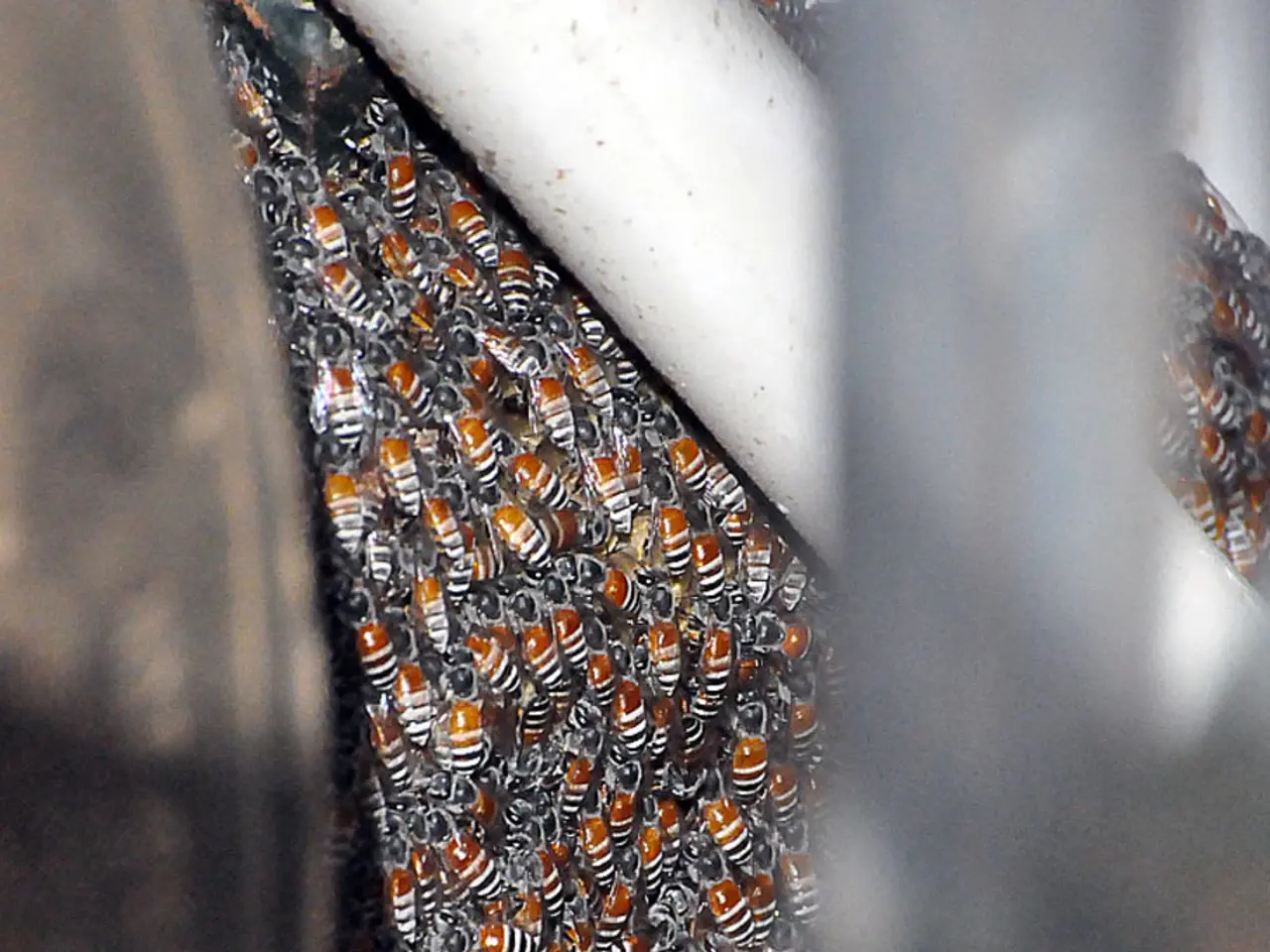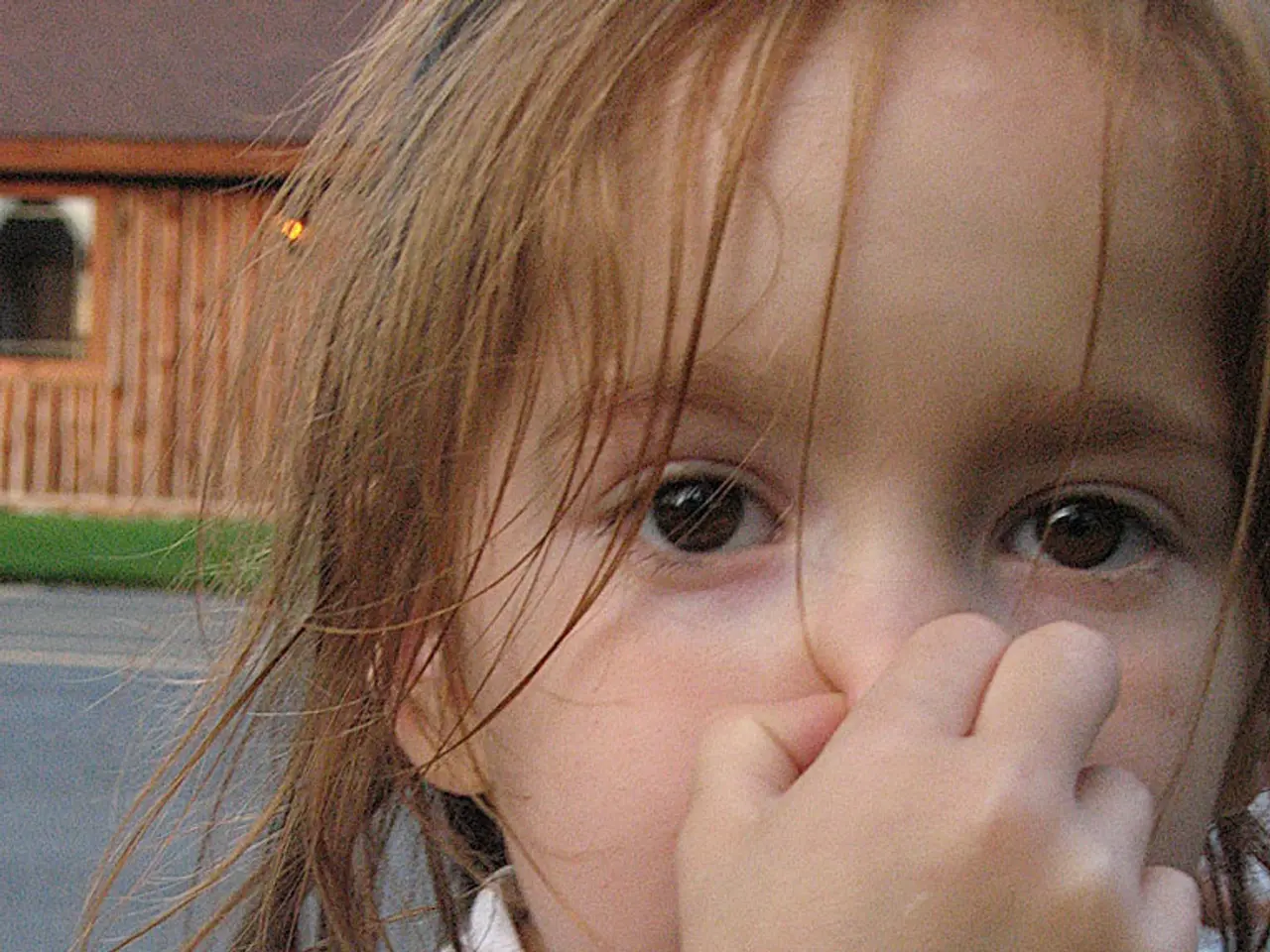Beekeeping's Hidden Perks for Mental Health: Unexpected Advantages Unveiled
In an increasingly fast-paced world, finding ways to manage stress, anxiety, and depression has become crucial. One unexpected yet impactful solution is beekeeping, which has been shown to provide significant mental health benefits for various populations, including military veterans, foster care system youth, and college students.
For instance, the Huneebee Project, founded by Sarah Taylor, is dedicated to helping young people navigate and heal from depression, anxiety, and trauma through beekeeping. One of the teenagers involved, Ray, finds the bees "calming." The project keeps its cohorts intentionally small, between five and seven members, to allow everyone the opportunity to build a relationship with the bees.
In Philadelphia, Amelia Mraz, a former Temple University student, opened Half Mad Honey to bring therapy out of the clinical setting and into nature. For military veterans, programs like HIVES (Honeybee Initiative for Veteran's Empowerment and Support) offer a structured, safe setting that empowers veterans to manage PTSD, anxiety, and depression through beekeeping combined with mindfulness, yoga, and breathing exercises. Research involving over 15,000 veterans in programs like Heroes to Hives has shown reductions in anxiety and depression and improvements in overall health, highlighting the therapeutic recreation value of beekeeping.
Foster care youth also benefit from beekeeping. The activity serves as a therapeutic alternative or complement to traditional talk therapies, especially for those who might not find verbal therapy effective. Engaging with bees helps address feelings of dislocation and disconnection common among foster care youth, fostering emotional healing and connection.
College students also experience stress reduction and enhanced well-being through beekeeping. Studies show that the interaction with the beehive creates a momentary escape from academic pressures, promoting mindfulness and mental calmness.
Common themes across these groups include mindfulness and relaxation, connection and community, therapeutic engagement, and emotional regulation. Beekeeping encourages practices like deep breathing and attention to sensory experiences, creating social bonds and a sense of purpose, providing meaningful leisure that supports mental health beyond traditional therapies, and helping individuals manage difficult emotions and stress.
Beekeeping offers a sense of purpose and identity, which can be empowering for those going through transition. Alex Guzman, a former beekeeper-in-residence, found that taking on a new identity as a beekeeper had a galvanizing effect and helped her find importance in other things. The Huneebee Project's 15-week program also helps teens develop job skills and build community.
In a community garden in New Haven, Connecticut, a beehive houses thousands of bees that have filled the frames with honeycomb. The sound of a hive in motion is described as "a choir of bees singing" by an apprentice. Guzman now manages a hive of her own and sees beekeeping as a form of therapy.
Research has shown reductions in anxiety and depression and improvements in overall health among military veterans and college students who engage in beekeeping as a therapeutic activity. Mraz co-authored a paper that described a pilot study finding that beekeeping in a therapeutic context helped reduce college students' stress and improved their well-being.
In summary, beekeeping acts as an innovative therapeutic tool that fosters mental resilience, reduces symptoms of anxiety and depression, and supports holistic well-being in veterans, foster care youth, and college students through mindfulness, connection, and purposeful engagement.
- Beekeeping, as a form of therapy, offers significant mental health benefits for various populations, including military veterans, foster care youth, and college students, as demonstrated by research involving over 15,000 veterans and studies among college students.
- The Huneebee Project, a small cohort dedicated to helping young people heal from depression, anxiety, and trauma through beekeeping, finds bees to be calming, while programs like HIVES for military veterans provide a structured, safe setting that empowers them to manage PTSD, anxiety, and depression through beekeeping combined with mindfulness, yoga, and breathing exercises.
- For foster care youth, beekeeping serves as a therapeutic alternative or complement to traditional talk therapies, helping address feelings of dislocation and disconnection common among foster care youth, fostering emotional healing and connection.
- In the future, the ecological benefits of science and health fields such as beekeeping and medical research may continue to intersect, offering innovative solutions for mental health and overall health improvements.




